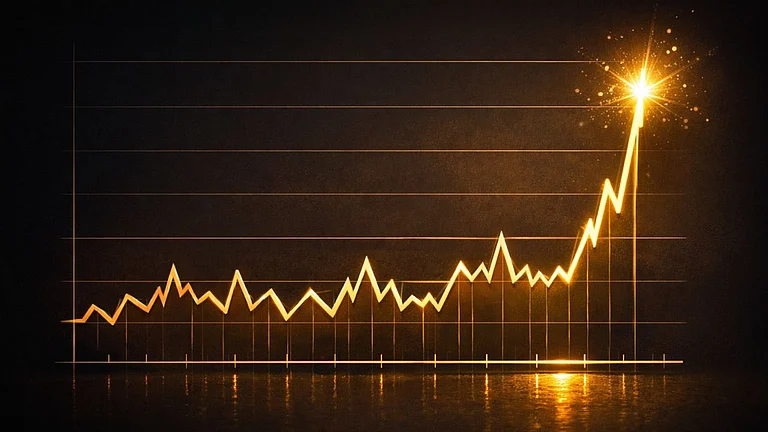The festive season is here, and so is the festival shopping spree in full swing. And with so many schemes on offer across e-commerce and retail stores on credit card payments, the incentive to shop using credit cards become only bigger.
But did you know that sometimes your credit cards can have a negative balance, meaning that your credit card balance has gone below zero. So, instead of you owing money to the credit card company or the card issuing bank, they owe money to you. This usually happens when you order something, but return it after the billing cycle.
For instance, let’s say you buy a mobile worth Rs 30,000 and make the payment through your credit card. One week later, the mobile arrives, and simultaneously, you settle your credit card bill as well. One week later after receiving the product, you return it and the merchant accordingly refunds the money back to your credit card. This scenario would lead to an overpayment and show a negative credit card balance in your next billing cycle.
But sometimes, due to human error too, you might have overpaid the total due on your credit card. This would also lead to a negative credit card balance.
Does Overpaying Credit Card Bills Impact Credit Scores?
Chitrabhanu K G, senior vice president and country head – retail assets and cards, Federal Bank says that people’s credit profile in the credit bureau is dependent on the repayment behaviour, extent of credit limit utilisation, and other parameters.
“If the cardholder has been diligent in utilisation of the limit and ensured prompt repayment of the bills raised, the credit profile will be stable. Overpayment in credit cards in excess of the billed amount will not have any impact on the credit profile,” he adds.
Here are some other important points you need to know about credit card overpayments.
1] Banks Can Refund Excess Amount If Requested: Sajish Pillai, managing director, India, and head – assets and strategic alliances, Development Bank of Singapore (DBS) says that the additional or excess amount paid to the credit card can be used to settle any future purchase using the same card.
“This amount (overpayment) gets net off against the current outstanding or against future purchases made on the credit card. If the customer reaches out to the bank for a refund of the additional amount, it is credited back to the customer’s savings account within defined timelines,” Pillai adds.
2] Large Amount Of Overpayment Can Trigger Fraud Alert: Sanchay Sinha, country head – retail banking, South Indian Bank, says there are various banking processes which continuously monitor a customer’s banking trends, including credit card overpayment behaviour. Thus, if a customer overpays an unusually large sum of money in their credit card, it could trigger a fraud alert in the bank’s system.
3] Excess Amount Paid Cannot Be Used For Increasing Balance, Credit Limit: Anurag Gupta, product manager, Fi Money, a neo-bank, says that sometimes, either because of mistake or due to other reasons, people might overpay their credit card bill. That will get adjusted with their credit limit, but there is a limit for that as well.
“For amounts greater than 1 per cent of the total credit limit or Rs 5,000 (lower of the two), credit card issuers have to seek your consent to add the excess amount to your card balance. This will appear as a negative credit balance in your credit card statement. Otherwise, it will be refunded to your bank account,” adds Gupta.
Says Sinha: “The additional amount you pay towards your credit card bill repayment will not increase the credit limit on your credit cards.”
4] What Happens To Negative Balance If Card Gets Closed: Your card will get closed if you do not use it within a year. So, what will happen to the negative balance on your credit card?
According to the Reserve Bank of India’s (RBI’s) master direction on credit cards, if any credit card has not been utilised for a period of more than one year, then the process for closing the card will be initiated after sending an intimation to the cardholder.
Chitrabhanu says the bank will wait for 30 days after sending such intimation and then initiate the closure process, “subject to payment of all dues by the cardholder. Subsequent to closure of credit card accounts, any credit balance available in credit card accounts shall be transferred to the cardholder’s bank account”.
Chitrabhanu says that at present there is no “expressed time limit for utilisation of excess/credit balance in credit cards.”
This means that although there is no expressed time limit for utilisation of excess credit card balance but in the case where you don’t use your credit card for more than a year, and you also do not respond to the bank’s intimation about the same, then it will be closed about 30 days or so from the date of intimation.
For example: suppose your credit card limit is Rs 12,000 and you have a credit card bill of Rs 9,000. If you paid Rs 20,000, then you have a negative balance of Rs 8,000.
This negative balance can either be used by you for future purchases or you can ask your bank to refund it. But if you did not use the credit card after overpaying and left it as it is for more than a year, then the closure process will start.
5] Overpaid Money Will Not Earn Interest: Banks will not give any kind of interest on this overpaid excess money on credit cards. According to Gupta, if this happens regularly or it involves a big amount of money, asking for a refund or using the excess amount for another purchase is best way to go forward.
Should You Overpay Your Credit Card Bill?
Adhil Shetty, CEO, BankBazaar.com, says that in pure financial terms, overpaying credit card balances does not make sense. It does not impact the credit score, since the net impact of repayment is either neutral or positive to the extent that the dues are zero. Besides, there is no interest earning because of the stipulated banking procedures, and neither does overpaying increase the credit limit.
“It’s better to keep the excess money in a savings account where it will earn interest,” adds Shetty.













